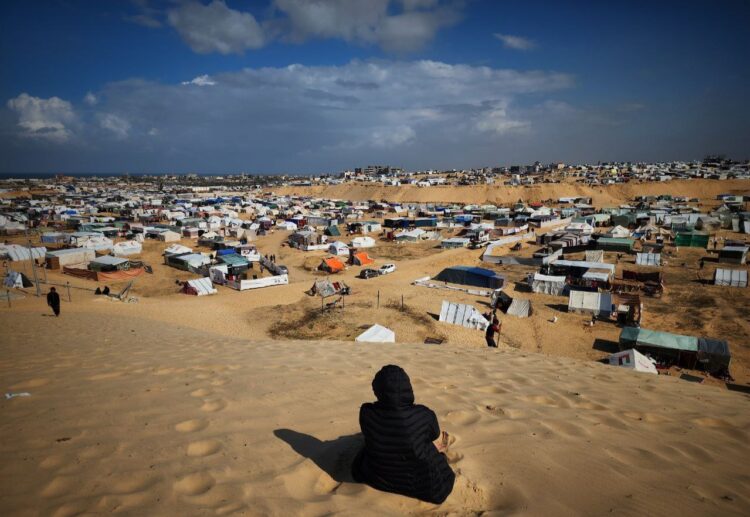Arab Summit in Cairo Tackles Palestinian Crisis
An urgent Arab summit convenes in Cairo to address the critical and evolving Palestinian issue. Regional tensions rise as international dialogues intensify over proposed solutions.
Published February 11, 2025 - 00:02am

Image recovered from shorouknews.com
The announcement of an extraordinary Arab Summit to be held in Cairo marks a pivotal moment in addressing the ongoing and complex Palestinian issue. Spearheaded by Egypt and coordinated with the current chair, Bahrain, the summit is scheduled for February 27, 2025. This gathering comes amid escalating tensions and pressing updates from the region, which have prompted widespread diplomatic dialogue and consultation across the Arab world.
The central focus of the summit will be the developments concerning the Gaza Strip and the broader Israeli-Palestinian conflict. Historically, Arab summits have played a crucial role in shaping collective Arab positions on the Palestinian cause. From the 1946 Anshas Summit that underscored Arab unity, to the 1967 Khartoum Summit famously known for its 'Three No's'—no peace, no recognition, no negotiation with Israel—these meetings have repeatedly underscored the Arab world's commitment to the Palestinian struggle.
Recent events have reignited diplomatic actions, largely sparked by controversial proposals from international actors. Notably, recent comments by former U.S. President Donald Trump have caused substantial uproar. His suggestion that Palestinians should be relocated from Gaza, paired with the vision of transforming Gaza into a 'Middle Eastern Riviera,' was met with a unified and categorical rejection from the Egyptian and Jordanian governments, among other regional entities. This proposal reverberates with an earlier idea floated by Jared Kushner, which faced similar repudiation.
The Arab world is gearing up to reassert its stance, especially against unilateral measures that threaten the viability of a two-state solution. Assistant Secretary-General Hossam Zaki of the Arab League noted that Arab efforts are intensifying to 'counter Israeli claims and reinforce the principle of a two-state solution.' Arab governments, backed by the Arab League, see the upcoming conference as an opportunity to crystallize a cohesive regional response to the enduring conflict.
The summit's timing could not be more critical, as it coincides with significant international developments. The assembly aims to navigate the challenging geopolitical landscape while focusing on securing Palestinians' inalienable rights and addressing humanitarian dimensions. The collective hope among Arab states is to foster a renewed international drive to resume peace processes and alleviate the suffering in Gaza.
As anticipation builds for the summit, high-level discussions have been underway, reflecting the Arabian Peninsula's complex diplomatic dynamics. A vocal Gulf state recently posed a critical perspective on rejecting Palestinian displacement, advocating for specificity in terminology. This instance encapsulates the broader regional discourse on maintaining a unified, strategic approach while acknowledging internal variations in policy. The outcome of these diplomatic debates may influence the summit's conclusions, underscoring its significance in the Arab League's broader regional strategies.
The historical precedent suggests that when Arab nations convene with a purpose-driven agenda, their collective resolutions often resonate beyond their immediate context. As the summit in Cairo approaches, its objectives to reflect on historical maneuvers, adapt to current realities, and chart future paths are more relevant than ever. The resolution of the Palestinian issue remains an integral concern that continues to define Arab summits historically and presently, reflecting the enduring commitment to justice and stability in the Middle East.






